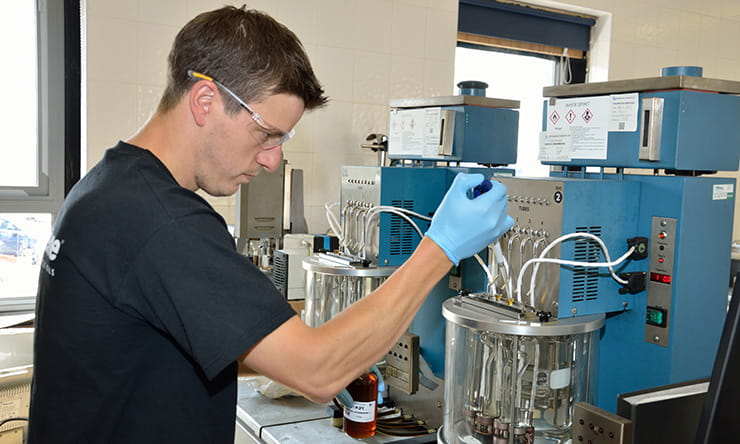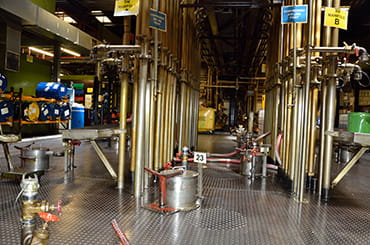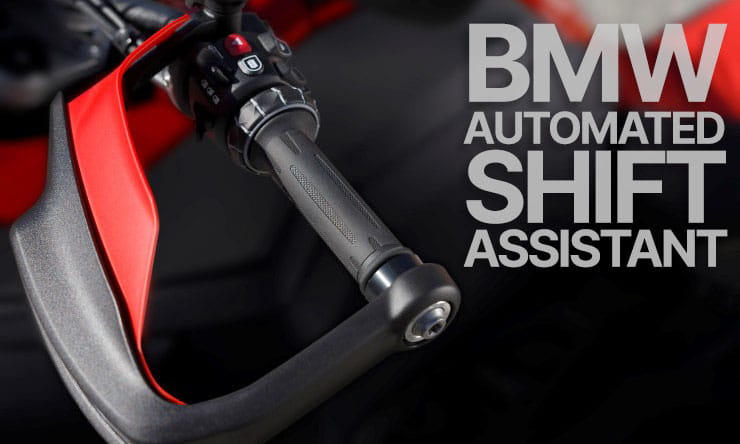Half of the motorcycle oil sold in the UK is produced in Stoke-on-Trent by Silkolene.
Silkolene motorcycle oil is sold in 55 countries. 95 per cent of it is produced in the UK. 100 per cent of it is developed in the UK by Silkolene's 40 strong team of research chemists.
The company was founded in 1908 by the Dalton family in Belper, Derbyshire to supply the agricultural and transport industries, where mechanical devices were rapidly replacing horses. They moved into the expanding car and motorcycle market, becoming involved in racing along the way. During World War II they produced military and aviation oils. Since 1996, Silkolene has been owned by German lubricant giant Fuchs, the largest independent, family-owned lubricant manufacturer in the world. They make lubricants for all uses, from greasing steel ropes on cable cars to petroleum jelly (think Vaseline) for the pharmaceutical trade.
The UK keeps firm control over the motorcycle section of the business with a programme of intensive research and development, during which they test products from other manufacturers as severely as they test their own oils.
They sell exclusively through motorcycle dealers through a nationwide network of distributors. They do not do direct sales and you won't find Silkolene lubricants in Halfords or Sainsburys.
Think wine box. The oil is pumped into a strong plastic bag. A tap is fitted and the bag of oil is placed in a cardboard container. The process uses far less plastic than conventional packaging. The shape makes the cubes easier to store and all the materials are 98% recyclable. At the moment they are concentrating on 20 litre packs but they are about to start testing fourlitre packs so you could be buying your oil in an eco-friendly package in the near future.
Silkolene produce every lubricant and fluid you need for a motorcycle: engine oil, fork and shock absorber oil, brake fluid, coolant, cleaners, chain lube and even wax polish. They also produce a range of oils for vintage and classic motorcycles, where the requirements differ from modern engines and transmissions.
I’ve been using Silkolene fluids in my bikes for as long as I can remember. Their oils and fluids are competitively priced and worth every penny. I also like to buy UK made stuff whenever possible. Cheap oils may have a temporary benefit on your health of your wallet, but they will shorten the life of your engine. All Silkolene engine oils meet the stringent Japanese JASO MA2 standard, the toughest in the world. The significant thing here is that if an oil is not JASO rated, it has not been tested on engines with wet clutches. As 99% of motorcycle engines have wet clutches, it is a significant consideration.
Many teams in MotoGP use Silkolene oils, even if they have another oil company’s name on the fairing, says Joost. The reason is money. “A well known oil company comes along with a huge pile of cash and asks ‘how much do you want to put our name on your bike?’. We are not able to compete with that sort of thing, and we do not necessarily want to, but a lot of teams use our oil anyway.”
Away from MotoGP, they sponsor Britsh superbike teams Be Wiser Ducati, Smiths Racing and Bournemouth Kawasaki. They are also involved in world superbikes, road racing, motocross and speedway.
Silkolene have just spent two and a half years developing a new range of additives named XP – all the work of the in-house chemists at Stoke – which are aimed at further reducing friction, thereby increasing engine economy, reducing oil consumption and giving a modest increase in power.
Exactly how various types of oil differ is a subject Bike Social will be covering in the future. It’s a huge subject. For now, if you want to know what grade of oil to use in your particular bike, www.silkolene.com has a product selector covering every motorcycle you can think of.
It’s quality lube. It’s developed and made in the UK. Could you ask for more?










